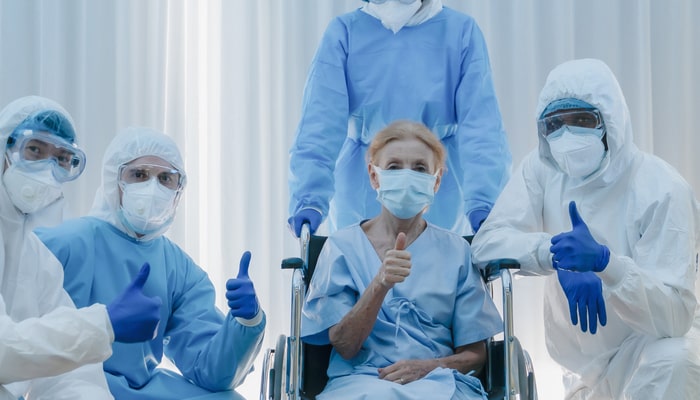Coronavirus Recovery: How long does it take to recover?
Above one million individuals globally are expected to have recovered from COVID, as per Johns Hopkins University. But the road back to comprehensive health is not the same for every person.
Recovery time depends upon how sick you became in the initial place. Few individuals will disregard the illness at a fast pace, but for others it could leave long-standing troubles.
Age, gender as well as other health problems all enhances the risk of becoming more severely ill from Coronavirus. The more invasive the treatment you get, and the longer it is done, the longer recovery is promising to take.
What if I have only mild signs?
Most individuals who get Coronavirus will develop only the major signs – a cough or fever. But they could experience body aches, fatigue, sore throat as well as headache.
In the initial place, cough is dry, but few individuals will ultimately begin coughing up mucus comprising of dead lung cells killed by the virus.
These signs are treated with bed rest, enough of fluids as well as pain relief like paracetamol. Individuals with mild signs are likely to make a good and speedy recovery.
What if I have more severe signs?
The illness can become much more severe for some. This appears to occur about seven to 10 days into the infection. The alteration can be hasty. Breathing becomes hard and the lungs get swollen.
This is due to the reason that even if the body’s immune system is trying to resist – it’s in fact overreacting and the body experiences collateral destruction.
What if I need intensive care?
The WHO approximates one person in 20 will require intensive care treatment, which may involve being sedated as well as put on a ventilator.
It will take a huge recovery time in an intensive or critical care unit (ICU), regardless of what the illness. Patients are moved to a regular ward before going home.
Will Coronavirus have an effect on my health long-term?
Acute respiratory distress syndrome (called ARDS) develops in patients who have an over-driven respiratory system, resulting in a damage to the lungs. Some also say that people also need mental health support to make better their recovery.
“PTSD [post-traumatic stress disorder] in these majorly serious patients is not predictable. There will be noteworthy psychological scars for a lot of people as well.” There remains the likelihood that even some mild instances may leave patients with long-term health problems – including fatigue.
Coronavirus Recovery: Proportion of people who have recovered
Getting an accurate figure is very troublesome. As of 1 May, Johns Hopkins University has stated more than 1,021,000 individuals had recovered out of 3.2 million individuals known to have been infected from COVID-19 all around the world. Mathematical models have declared between 99-99.5% of people those have recovered.
Are there any chances of catching Coronavirus again?
There has been much rumor, but little data, on how tough any immunity is. If patients have fruitfully fought off the virus, they must have developed an immune response.
The immunity query is very important for understanding whether individuals can be reinfected and how effectual any vaccine may be.

